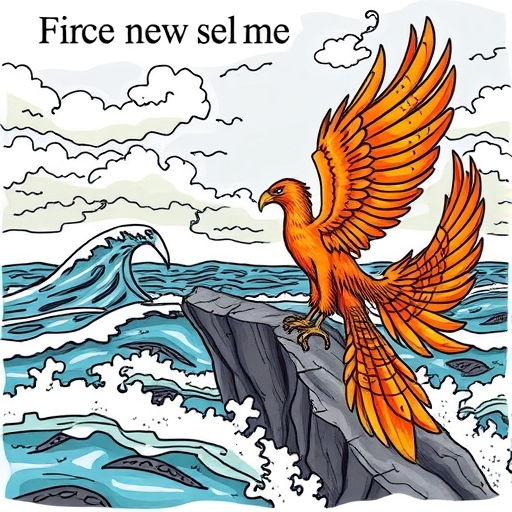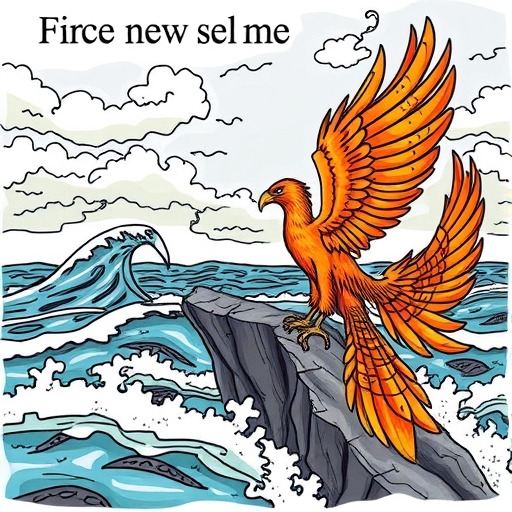Navigating the Storm: Unpacking the WANdisco Fraud and Cirata’s Quest for Redemption
In the complex and often unpredictable world of investing, the exposure of corporate fraud can send seismic waves, eroding investor confidence and dramatically reshaping a company’s trajectory. Few recent cases illustrate this more vividly than the dramatic downfall of WANdisco, a once-promising data software group whose fortunes plummeted following the uncovering of a sophisticated sales and accounting fraud. Its shares were immediately suspended, triggering a precipitous loss in market value that left shareholders reeling. As we delve into this challenging narrative, you will gain profound insights into the anatomy of financial misconduct, the arduous journey of corporate recovery, and the critical lessons learned about governance and accountability. Join us as we dissect the WANdisco saga, from its scandalous reckoning to its strategic rebranding as Cirata, and the fraught path it now navigates in its urgent quest for corporate redemption.
- WANdisco’s fall illustrates the impact of corporate fraud on investor trust.
- The journey of recovery is multifaceted, involving leadership changes and strategic shifts.
- Key lessons about governance and accountability are highlighted throughout this case.
The Genesis of a Scandal: WANdisco’s Meteoric Rise and Unseen Cracks
Before the dramatic headlines of March, WANdisco, a British-American firm specializing in data replication and migration software, had carved out a significant niche, particularly in hybrid cloud environments. For many investors, it represented a compelling growth story, leveraging cutting-edge technology to assist global enterprises in their digital transformation journeys. The company had enjoyed a seemingly meteoric rise, with its market capitalization soaring to over £890 million in early March, reflecting robust investor optimism and an impressive backlog of reported sales. We often see how the market enthusiastically embraces innovative companies, believing in their reported figures and future potential. However, beneath this gleaming exterior, fundamental cracks were forming, unbeknownst to most shareholders and external observers. The very mechanisms designed to drive growth, such as aggressive sales targets and reported bookings, would ultimately become the conduits for a profound deception, revealing the inherent vulnerabilities that can exist even within seemingly robust corporate structures.
| Key Milestones | Date |
|---|---|
| Market Capitalization Peak | Early March 2023 |
| Initial Fraud Discovery | March 2023 |
| Share Suspension | March 2023 |
The Fraud Unveiled: Deciphering the Financial Irregularities
The initial shockwave hit when WANdisco announced a significant discrepancy between its reported figures and actual performance, leading to the immediate suspension of its shares on the AIM market. An internal investigation, swiftly launched in response to red flags, meticulously uncovered the true scale of the financial misconduct. The findings were stark and alarming: the company’s revenue had been overstated by approximately $15 million, a considerable sum for a firm of its size. Even more egregious, sales bookings were falsified by a staggering $115.4 million (£88 million). Can you imagine the impact of such discrepancies on a company’s valuation? What was initially reported as a robust £18 million in revenue was, in reality, a mere £7.4 million. Similarly, declared bookings of £97 million were found to be only £8.7 million. This monumental divergence was attributed primarily to the actions of a single senior salesperson, highlighting how even a lone bad actor, operating within a system lacking adequate oversight, can precipitate a devastating financial scandal. This incident serves as a stark reminder for us all about the critical importance of rigorous internal controls and an independent, vigilant audit function within any public company.

The Immediate Aftermath: Market Plunge and Share Suspension
The exposure of the WANdisco fraud triggered an immediate and precipitous decline in its fortunes. The AIM market, where the company’s shares were traded, moved swiftly to suspend trading, a necessary measure to prevent further speculative damage and to allow the market to digest the implications of such severe financial irregularities. For shareholders, this meant their investments were suddenly locked, their ability to buy or sell eradicated, leaving them in a state of anxious uncertainty. The impact on market capitalization was devastating. From a peak of over £890 million in early March, the company’s valuation plummeted to approximately £100-£103 million post-scandal. This kind of value erosion is not just a statistical abstract; it represents real wealth wiped out for thousands of investors, from large institutional funds to individual retail shareholders who had placed their trust and capital in WANdisco’s future. The market’s reaction underscored a fundamental principle: trust is the bedrock of financial markets, and once shattered by corporate misconduct, it can take years, if not decades, to rebuild. How do you think such a rapid and severe devaluation affects investor confidence across the broader market?
| Market Impact | Value (£) |
|---|---|
| Peak Valuation | 890 million |
| Post-Scandal Valuation | 100-103 million |
The Contentious Battle for Bonuses: Executive Accountability Under Scrutiny
As the dust began to settle on the initial shock of the fraud, a new controversy emerged, fueling shareholder anger and igniting a debate about executive accountability. The company’s board, facing immense pressure to recover lost value and signal a commitment to good governance, formally demanded the repayment of approximately £650,000 ($832,000) in bonuses from former co-founder and CEO David Richards, and ex-CFO Erik Miller. These bonuses, awarded for the last financial year, were seen by many as undeserved given the catastrophic financial misstatements that occurred under their watch. However, in a move that further incensed shareholders, Richards and Miller “robustly rejected” the company’s request. Their combined pay packages for the period were substantial, reaching $1.14 million for Richards and $551,000 for Miller. This refusal highlighted the complex legal and ethical quagmire surrounding executive compensation in the aftermath of corporate misconduct. Shareholders, having seen their holdings plunge significantly, felt a profound sense of injustice. The question for us as observers becomes: What legal and ethical mechanisms should be in place to ensure that executives are truly held accountable for their leadership and the financial integrity of the companies they lead, especially when fraud is uncovered?
The Shadow of Related-Party Transactions: Unpacking Controversial Deals
Adding another layer of controversy to the WANdisco saga was the disclosure of a significant related-party transaction within its annual report. This involved a $360,000 (£280,000) sponsorship agreement with Sheffield Wednesday FC, a football club. What made this particular deal contentious was that it was struck on behalf of EyUp Skills Limited, a company owned by former CEO David Richards and his wife, Jane Richards. Related-party transactions, while not inherently illegal, always warrant close scrutiny, especially during periods of financial distress or corporate malfeasance. They raise significant questions about potential conflicts of interest and whether such deals are truly in the best interest of the company and its shareholders, or if they serve the personal interests of connected individuals. The timing and nature of this sponsorship agreement, against the backdrop of an unfolding fraud investigation and the company’s desperate need for financial stabilization, fueled further shareholder distrust and prompted intensified calls for greater transparency and stringent corporate governance. For investors, understanding the nuances of related-party transactions is crucial for identifying potential risks and ensuring that a company’s resources are being deployed for collective benefit, not individual enrichment.

A New Dawn: Stephen Kelly’s Leadership and the Quest for Stability
In the wake of the devastating fraud, WANdisco recognized the urgent need for decisive leadership and a clear path to recovery. Stephen Kelly, a seasoned executive with a proven track record, notably as the former CEO of Sage Group, was parachuted in as interim CEO, and later made permanent. His appointment signaled a strong commitment to stabilizing the company and rebuilding its shattered reputation. Under Kelly’s stewardship, one of the immediate priorities was to secure critical emergency funding to ensure the company’s continued operation. Remarkably, the company successfully secured $30 million (£23.3 million) in new funding, a testament to the new management’s ability to instill a degree of confidence in investors despite the precarious situation. This influx of capital was vital for shoring up the balance sheet, covering immediate operational costs, and providing a lifeline for the troubled firm. Beyond securing funds, Kelly also oversaw necessary workforce reductions as part of a broader corporate restructuring effort, streamlining operations to reflect the company’s revised financial reality and strategic outlook. These initial steps were crucial in halting the bleeding and laying the groundwork for a potential revival, demonstrating how strong leadership can begin to steer a company away from the brink of collapse.
Rebranding for Redemption: The Strategic Shift to Cirata plc
One of the most significant and symbolic steps in WANdisco’s recovery efforts was the strategic decision to rebrand itself as Cirata plc. This was not merely a cosmetic change; it was a deliberate and necessary maneuver to distance the company from the immense negative connotations associated with the “WANdisco fraud” and its tarnished past. A new name, accompanied by a new brand identity, aims to create a fresh narrative and build positive brand equity from the ground up. Shareholders overwhelmingly approved the name change, signaling their support for this forward-looking strategy. The goal is clear: to establish a new identity that evokes trust, innovation, and a renewed commitment to ethical business practices. By shedding the old name, Cirata hopes to signify a complete break from the scandal, enabling it to focus on its core strengths in data activation and future growth without the constant shadow of past misconduct. This rebranding is a powerful psychological tool, both for internal morale and external perception, as the company strives to rebuild its reputation and re-engage with clients and investors who may have been wary post-scandal.

Forging Ahead: New Partnerships and the Road to Operational Excellence
Under its new identity as Cirata, the company is not merely resting on its rebranding efforts; it is actively pursuing new business opportunities and strengthening its market position. A tangible sign of this forward momentum is the announcement of new strategic partnerships, such as a $400,000 deal with General Motors. Such deals are critical, serving as proof points that the company’s technology remains valuable and that customers are willing to engage with the new Cirata, despite its past. The company’s focus remains on its expertise in data activation platforms and cloud-based analytics, areas where demand continues to grow exponentially. This requires a renewed commitment to operational excellence, ensuring that internal controls are robust, sales reporting is accurate, and every aspect of the business operates with the highest degree of integrity. The resumption of trading on the AIM market in July, following its suspension, marked another critical milestone, allowing investors to trade their shares once more, albeit at a significantly reduced valuation. While the path ahead remains challenging, these early successes under the Cirata brand are vital indicators of its determination to regain market credibility and carve out a sustainable future.
| Recent Developments | Details |
|---|---|
| New Partnerships | $400,000 deal with General Motors |
| Resumption of Trading | July 2023 |
Lessons for Investors: Due Diligence and Navigating Market Volatility
The WANdisco fraud offers invaluable lessons for both new and experienced investors. It underscores the critical importance of robust due diligence, not just into a company’s products or market potential, but also into its financial statements, corporate governance practices, and executive team. While external audits provide a layer of assurance, this case demonstrates that even audited figures can, in rare but impactful instances, be compromised by sophisticated internal misconduct. We learn that diversification is not just a buzzword; it is a fundamental risk management strategy that can cushion the blow when one investment encounters unforeseen challenges. Furthermore, understanding market reactions to negative news, such as share suspensions and precipitous value drops, can inform your approach to risk and portfolio management. Always consider the potential for “black swan” events and ensure your investment strategy incorporates mechanisms to protect your capital. The ability to distinguish between market noise and genuine fundamental issues is paramount.
Strategic Choices for Your Investment Journey: Beyond the Headlines
As you navigate the dynamic landscape of financial markets, understanding the various avenues available for investment and trade becomes crucial. While stock market events like the WANdisco fraud highlight the risks, they also emphasize the opportunities for those who conduct thorough research and manage risk effectively. For instance, exploring diversified portfolios that include different asset classes can mitigate single-company risks.
If you’re considering expanding your trading horizons beyond traditional equities, or wish to explore leveraged products like Contracts for Difference (CFDs), selecting a reliable and versatile trading platform is a critical first step. Should you be contemplating venturing into forex trading or exploring a broader range of CFD products, then Moneta Markets presents itself as a platform genuinely worth your consideration. Originating from Australia, it offers an extensive selection of over 1000 financial instruments, catering effectively to both novice traders taking their first steps and seasoned professionals seeking advanced functionalities. We recognize the importance of choice and flexibility for every investor, and platforms that provide comprehensive options are highly valuable.
Ensuring Accountability and Rebuilding Trust: The Path Forward
The journey for Cirata, formerly WANdisco, is far from over. While significant strides have been made in securing emergency funding, implementing new leadership, and strategically rebranding, the lingering issues of executive accountability and the complete rebuilding of investor trust remain central challenges. The legal uncertainty surrounding the board’s power to compel former executives Richards and Miller to repay the bonuses highlights a broader systemic issue: how effectively can corporations and regulatory bodies enforce accountability when misconduct occurs at the highest levels? This is a question that directly impacts investor confidence. For Cirata, sustained operational performance, rigorous adherence to new governance standards, and consistent transparency will be paramount. Their ability to deliver on new contracts, grow their customer base, and demonstrate a truly clean slate will ultimately determine the success of their recovery. The WANdisco fraud serves as a powerful case study in corporate resilience, or the lack thereof, and the enduring importance of ethical leadership and robust oversight in safeguarding shareholder value and maintaining market integrity.
wandisco fraudFAQ
Q:What was the primary issue that led to WANdisco’s downfall?
A:The primary issue was a sophisticated sales and accounting fraud that led to significant discrepancies in reported and actual financial performance.
Q:How much was WANdisco’s revenue overstated?
A:WANdisco’s revenue was overstated by approximately $15 million.
Q:What steps is Cirata taking for recovery?
A:Cirata has implemented new leadership, secured emergency funding, and rebranded itself to rebuild trust with investors.

留言